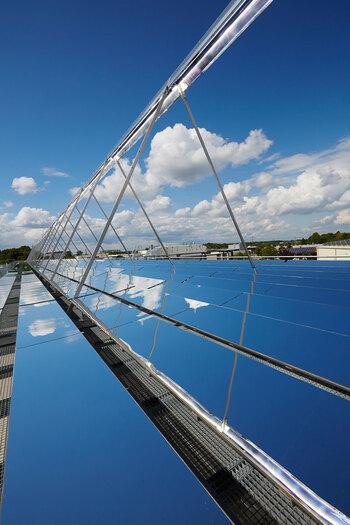Context
Over 90 per cent of Mexico’s energy supply is currently dependent on fossil fuels. The recently enacted energy reform and Energy Transition Law have established a crucial foundation for increasing the share of renewable energies in the energy supply. Additionally, the country has set ambitious targets for expanding the use of clean energies within the framework of international climate negotiations.
However, solar energy’s huge potential still remains largely untapped. There are several reasons for this, including the lack of a specific funding programme. Consequently, the technical and commercial risks associated with projects are often estimated as being too high and therefore prevent project developers from investing in solar energy technologies. National financial institutions in Mexico also have little experience in evaluating and financing large-scale solar projects. Furthermore, cooperation between the private sector, science and research, and state institutions is still underdeveloped and unable to spur investment in innovative technologies. In addition, the various stakeholders involved do not have mechanisms at their disposal to take a coordinated approach capable of stimulating the market for solar technologies.
Objective
The technical, financial and organisational conditions for the large-scale use of solar energy for power generation are improved. Photovoltaic facilities that supply the electric grid and new applications for solar thermal energy, such as the use of solar cooling and solar process heating for industry, are being applied more broadly.
Approach
On behalf of the German Federal Ministry for Economic Cooperation and Development (BMZ), GIZ is supporting Mexico in implementing this programme. It is funded by the German Climate and Technology Initiative (DKTI) and comprises the following thematic priority areas:
-
Market introduction and technology transfer of innovative systems
The programme supports key stakeholders in the private, public and research sectors to help bring large-scale solar energy technologies onto the market. In order to stimulate demand, large energy consumers such as industrial enterprises, commercial businesses and public institutions receive comprehensive information about possible technical and commercial applications, economic viability, incentive schemes, financing, and reference projects.
In order to achieve the climate-friendly transformation of the energy system, the range of industrial solar systems must be expanded, both in terms of quality and quantity. With this in mind, the programme is enhancing cooperation between potential users and institutions, such as industry associations and chambers of commerce, in order to encourage multiplier effects. The focus areas include: developing strategies and roadmaps for expanding solar energy technologies, setting quality standards, capacity building, establishing a regulatory framework, disseminating new business and financing models, promoting value chains, and market development.
In order to develop an integrated market strategy, the programme is utilising collaborative platforms to foster cooperation among key stakeholders, with a particular focus on new actors in the energy market and institutions that promote technical and economic innovation in the energy sector. One of the key partners in terms of innovation and technology transfer is the Mexican Center for Innovation in Solar Energy (CeMIE-Sol), a network of academic and private institutions. GIZ advises CeMIE-Sol’s scientific committee and supports strategic projects in collaboration with enterprises and research institutions in both Mexico and Germany. Participation in workshops, conferences and study tours along with training courses and activities aimed at disseminating solar energy technologies help to build the capacities of partners. -
Improving the capabilities of financial institutions
The programme is enhancing the institutional capacities of the national development and trade bank, Bancomext, which has a line of credit funded by the KfW Development Bank for financing large-scale photovoltaic projects. The programme is raising awareness among Bancomext staff regarding evaluations, risk assessments and financing for solar projects while taking into consideration new business models available through the liberalised energy market. It likewise provides advisory services on improving methods for evaluating the commercial and financial aspects of solar projects. Plans call for broadening this cooperation to include financial intermediaries and the development of new financing mechanisms. -
Harmonising the development of solar energy
The programme supports platforms utilised by stakeholders working in policy, science and business such as the advisory board of the Secretariat of Energy (SENER) and the Solar Energy Network under the National Council for Science and Technology (CONACyT). It is helping strengthen their capacity to create policies, formulate strategies and implement the programmes themselves. GIZ advises the Mexican Secretariat of Energy and CONACyT on approaches regarding policy, technology and innovation including creating roadmaps, promoting cluster development and setting up scientific and economic networks.
The liberalisation of the energy market and recent tenders for clean energy have created a new dynamic for the expansion of solar energy in Mexico. The expected increase in variable renewable energies on the electricity market also presents new challenges for system integration and the expansion of energy infrastructure. The programme is supporting this transformation process with analyses, studies and modelling, and by disseminating information and fostering political dialogue. Through these activities, the DKTI solar programme aims to overcome the obstacles hindering the development of climate-resilient energy technologies and contribute to the long-term, sustainable development of the energy system.
